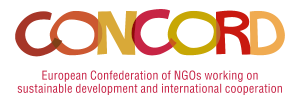This op-ed was produced by our Inequalities and Sustainable Economy workstream. We thank Mikkel Kofod Nørgård (World Fair Trade Organization), Heleen Heysse (Cooperatives Europe) and Luísa Fondello (Caritas Europa) for their contributions to this piece. We also thank CONCORD’s Sustainable Economy group and its allies of the Fair Trade Advocacy Office (FTAO), World Fair Trade Organization and the International Cooperative Alliance (ICA) for their continued support.
The EC’s Social Economy Action Plan (SEAP), launched on 9 December, is ambitious and well thought through with the potential to help mission-focused businesses flourish. However, it falls short of offering a new vision for an economy that puts the well-being of people and planet first. It also fails to be truly global in its approach, despite a nod in that direction. The plan recognises the need for sustainable and inclusive business models to be part of the effort to create crisis-resilient societies and economies. But it shows a remarkable lack of reflection and imagination when tackling the external dimension and what the EU could do to support these models in partner countries.
If the EC is serious about building a ‘partnership of equals’, then it must develop a plan for how to embed the development of the social economy in its external action.
The business of a sustainable future
The profit-focused economic system is largely dependent on unsustainable practices, overproduction, worker exploitation and the destruction of nature. Businesses often create deeper inequalities rather than shared prosperity and well-being for all. However, rising awareness about the permanent damage caused by capitalism’s ‘creative destruction’ has seen the growth of businesses that put the interests of people and the planet at the heart of their business model.
The European Commission’s decision to develop a Social Economy Action Plan to promote and support these kinds of businesses is therefore welcome. It supports this Commission’s vision of ‘an economy that works for people’. Sustainable and inclusive businesses are indeed leading by example across all sectors. And they contribute to key objectives that the EU wishes to achieve, such as reducing inequalities and poverty, respecting the environment, empowering marginalised groups and boosting local economies.
A large number of these sustainable and inclusive businesses are born locally, and solve local issues such as energy poverty or unemployment. Recent figures show that approximately 9.46% of the world’s working population – over a 100 million people – are employed by social enterprises. This is 20% more than the number of people employed by multinational enterprises. So it was high time the EU developed an action plan dedicated entirely to such businesses.
The Action Plan covers many of the key ingredients that have blocked the growth of social enterprises, such as the lack of a policy and legislative framework addressing this specific kind of business, including taxation and procurement policies, and the difficulty for these businesses to access capital. Indeed, the Plan addresses many of the issues CONCORD identified in its report on the subject in 2020. Unfortunately, it is less clear what exactly the EC wishes to achieve. The Plan mentions post-COVID-19 transitions and recognises that the social economy plays a role in recovery, but the ultimate objectives which should guide the Action Plan have not been laid out. So one can only assume that systemic change is not on the cards. And if that is the case, it is a very real missed opportunity and typifies the EU’s short-term thinking.
Supporting social economy in Europe and beyond
Both Europe and the rest of the world will ultimately pay the price for missing the opportunity to radically rethink how the global economy functions. COVID-19 should have been a wake-up call to leaders. The so-called unforeseeable had been foreseen. But for all that, our responses are lacking. The pandemic served to make the world’s richest men even richer, while over 140m more people fell into extreme poverty. That the Plan refers to the EU’s COVID Recovery and Resilience Facility is encouraging for Europe, but begs the question about how the EU plans to support its partner countries. Very little is said about them.
The EC leaves it up to the EU Delegations to draw inspiration from the many ideas that the Plan envisages for within Europe.
If the EC is serious about building a ‘partnership of equals’, then it must develop a plan for how to embed the development of the social economy in its external action. Currently, the focus of the EU’s private sector support in its external policies remains, primarily, the expansion of multinational European companies into Africa, applying traditional, exploitative business models. Similarly, if the EU is serious about investing in youth entrepreneurship in Africa, it must support the emergence of local businesses that are inclusive and sustainable.
The EU should use all the tools at its disposal. One such tool is its trade policy. Trade and investment agreements must be favourable for such businesses as part of cross-continental collaboration to tackle many of the world’s key challenges, such as climate change or migration. Yet, there are no connections with trade policy in the SEAP.
Putting words into action in 2022
The 6th African Union-European Union Summit, to be held in February 2022, and the renewed EU-Africa Partnership could be a perfect opportunity to announce concrete measures to ensure sustainable livelihoods for all through the development of the social economy on the two continents. The EU must work towards building a people-centred global economy that uses profit as a means to invest in sustainable and equitable societies for all.
Read more:
Media inquiries
Katarzyna Krok | Communication Officer | CONCORD
katarzyna.krok@concordeurope.org
+32 456 258 710
Tanvi Mishra | Communication Officer | CONCORD
tanvi.mishra@concordeurope.org
+32 (0)2 743 87 82
